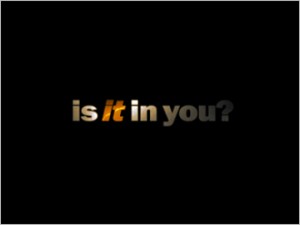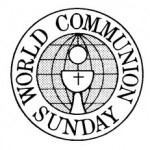 It was a winter day as I waited beneath the funeral canopy. Still, drops of perspiration collected in the small of my back as my dark suit and nerves conspired to suffocate me in spite of the cold weather. Funerals, neckties, and mourners always raise my temperature. It’s probably due to the fact that as a minister I am sometimes forced into the impossibility of speaking a bit of comfort at the most difficult time.
It was a winter day as I waited beneath the funeral canopy. Still, drops of perspiration collected in the small of my back as my dark suit and nerves conspired to suffocate me in spite of the cold weather. Funerals, neckties, and mourners always raise my temperature. It’s probably due to the fact that as a minister I am sometimes forced into the impossibility of speaking a bit of comfort at the most difficult time.
Gathered under that tent was a new widow; mourning children; heartbroken grandchildren; and an eclectic collection of friends, distant relatives, and neighbors come to pay their last respects. The deceased was a near stranger to me. I did not know him well, but I was with him, his wife and son, when he died. As he drew his last breath we read from the Psalms and said our prayers. Now, we were repeating that ritual at burial.
After the service the family did what families often do at a time like this. They sat down to a great meal. Invited to join them, I accepted. At the table everyone began that healing ritual of eating and remembrance. “Pass me a napkin,” was mixed with the oft-invoked “Do you remember the time?” And “How does that pie taste,” rolled out in harmony with “Dad sure would have enjoyed himself here today.” Laugh. Remember. Eat. Cry. Heal.
As I was leaving the restaurant the son of the departed stuffed an envelope into my hand. I knew it was the traditional honorarium for leading the funeral service. After more than fifteen years of doing this sort of thing I still don’t know how to react to this kind of gift. Sure, if I perform a wedding ceremony, I’m happy to be compensated. That seems fair enough, especially with the rising price of gasoline. But a funeral always stumps me. So on this day I tried to give it back. The son refused.
“You don’t know how much I appreciate this,” he said. “Dad was a part of church for years but had not attended since he got sick. He and mom really don’t have a pastor. And me, well, I haven’t gone to church in years.” I suddenly felt comfortable enough to ask the obvious question: “Why don’t you attend church anymore?” He screwed up his mouth beneath his mustache for a moment and answered, “Understand, I don’t have anything against religion. The church and I just grew apart. Maybe, I outgrew the church.”
There are scores and scores of people just like this man who have unplugged themselves from the institutional church. They do so for various reasons. Some, a terribly small number, lose faith completely. Again, this is a minuscule number. Others get angry or hurt with church leadership, or they become disillusioned with the structure or a particular denomination. But some “leavers” – a great many I believe – depart with an authentic faith and develop a healthier, happier, more hopeful perspective than many of us who fill the pew each Sunday.
These leavers love their families and their neighbors. They are people of generosity, integrity and joy. They worship their God and cling to Christ. They simply have found church, in their experience, to be unhelpful to their spiritual well-being. Alan Jamieson has written extensively on this subject. In his book A Churchless Faith, he says, “We need to realize that God is in the questions as well as they answers and that living with the questions is part of the journey.”
We who feel at home in the church sanctuary must also learn that these beautiful lambs of God are still in his fold; even if they choose not to sleep in the barn every night.

